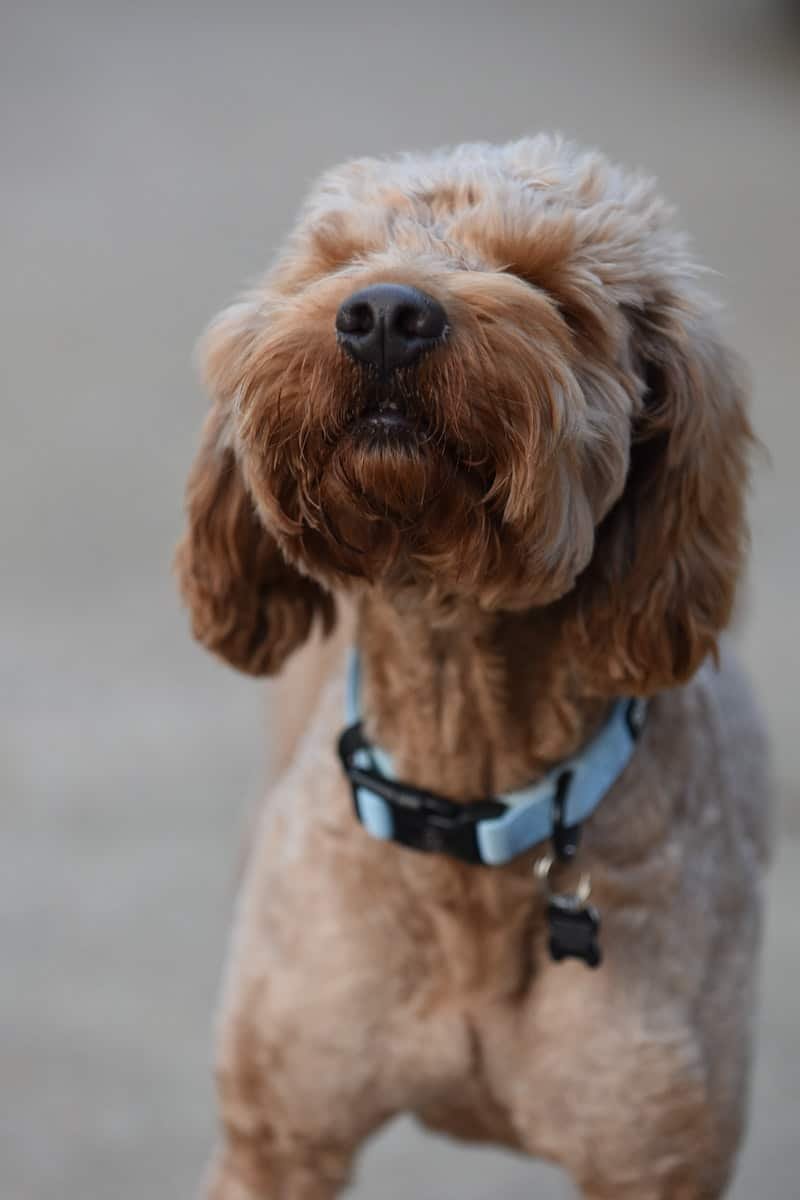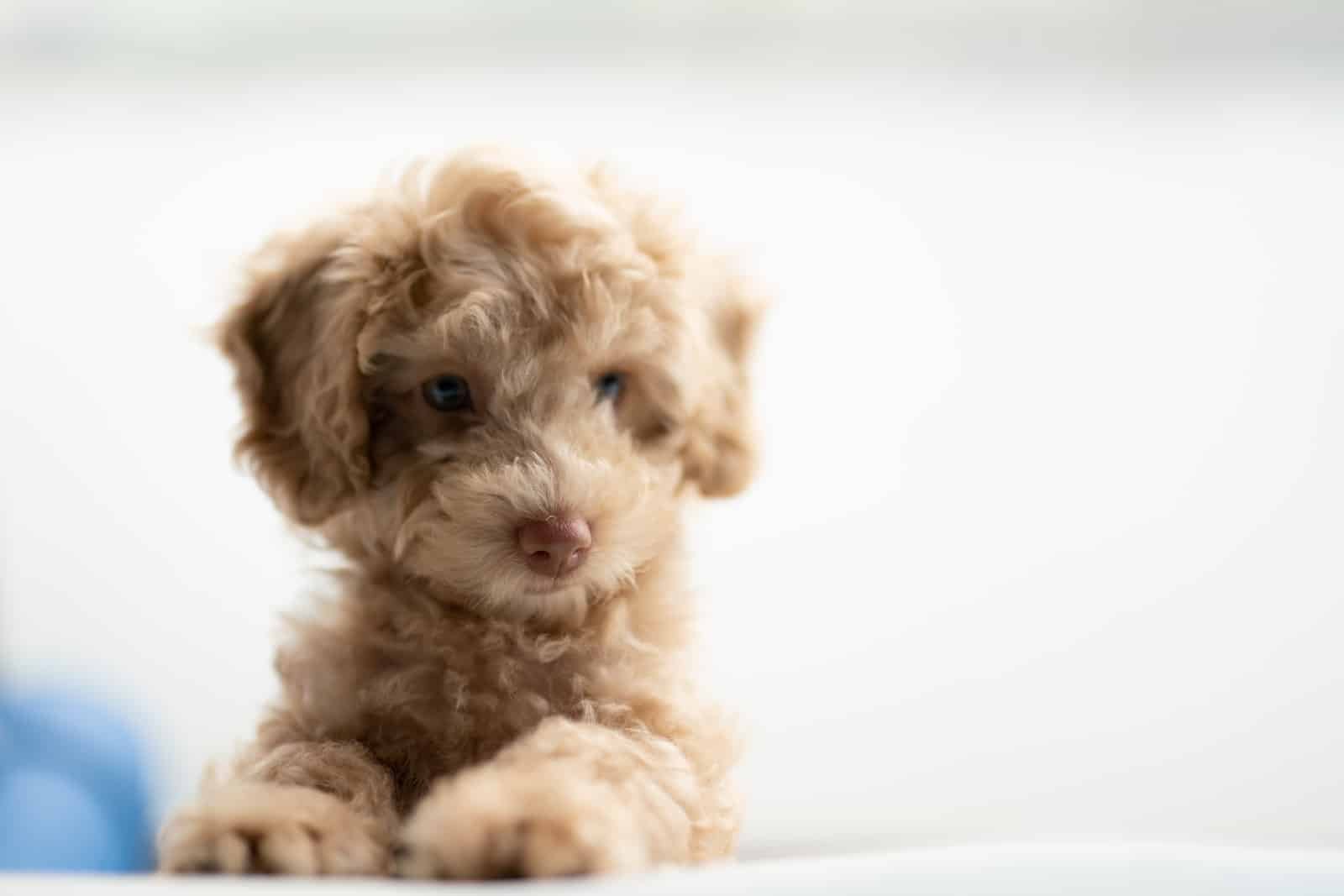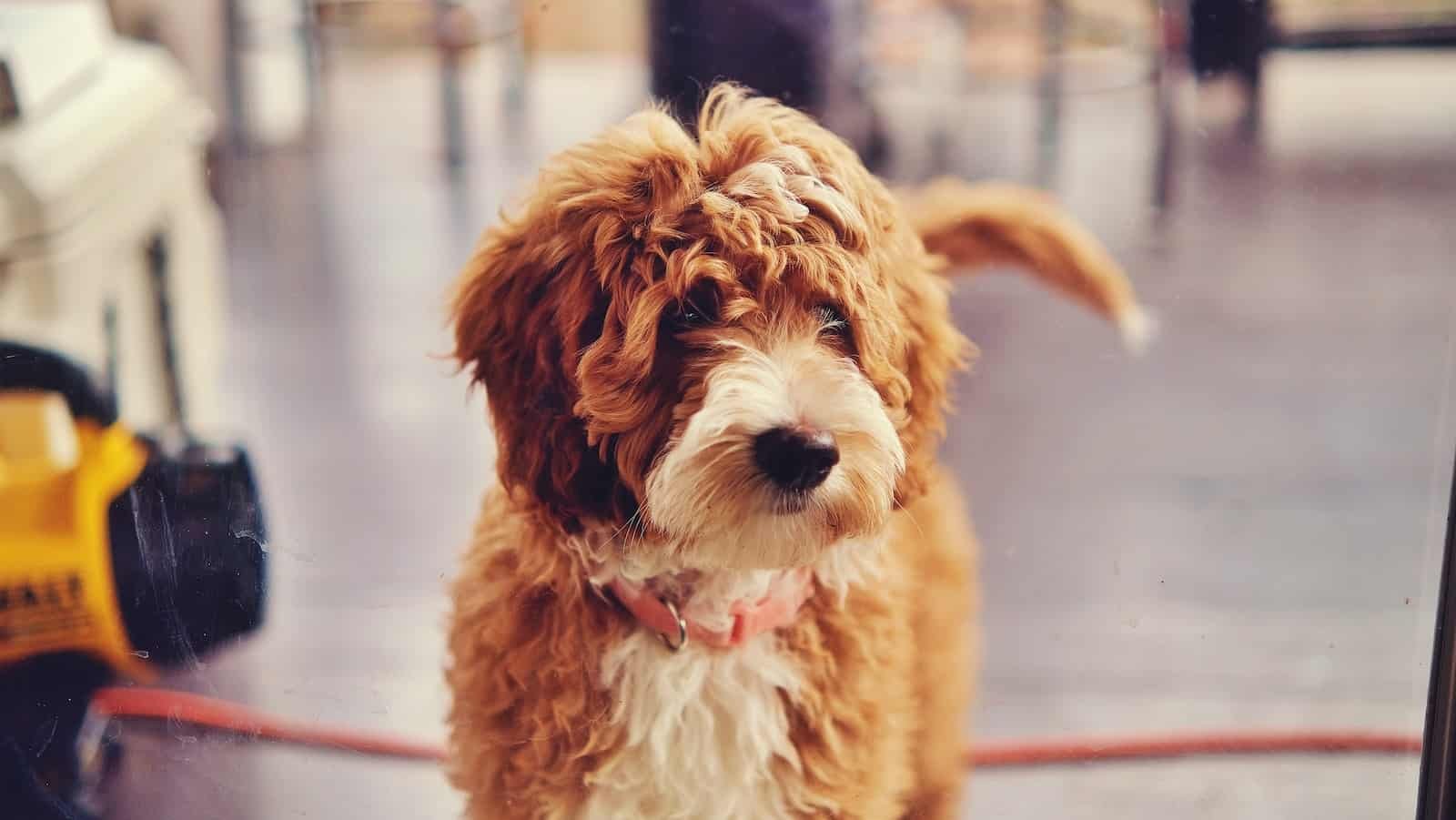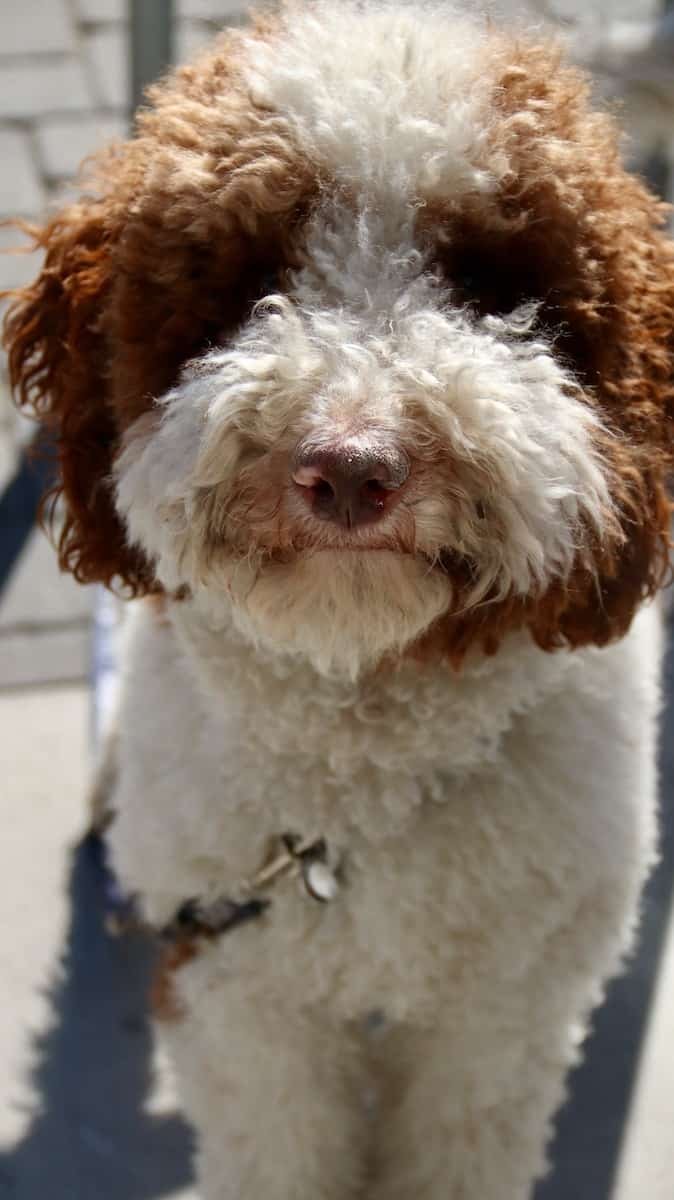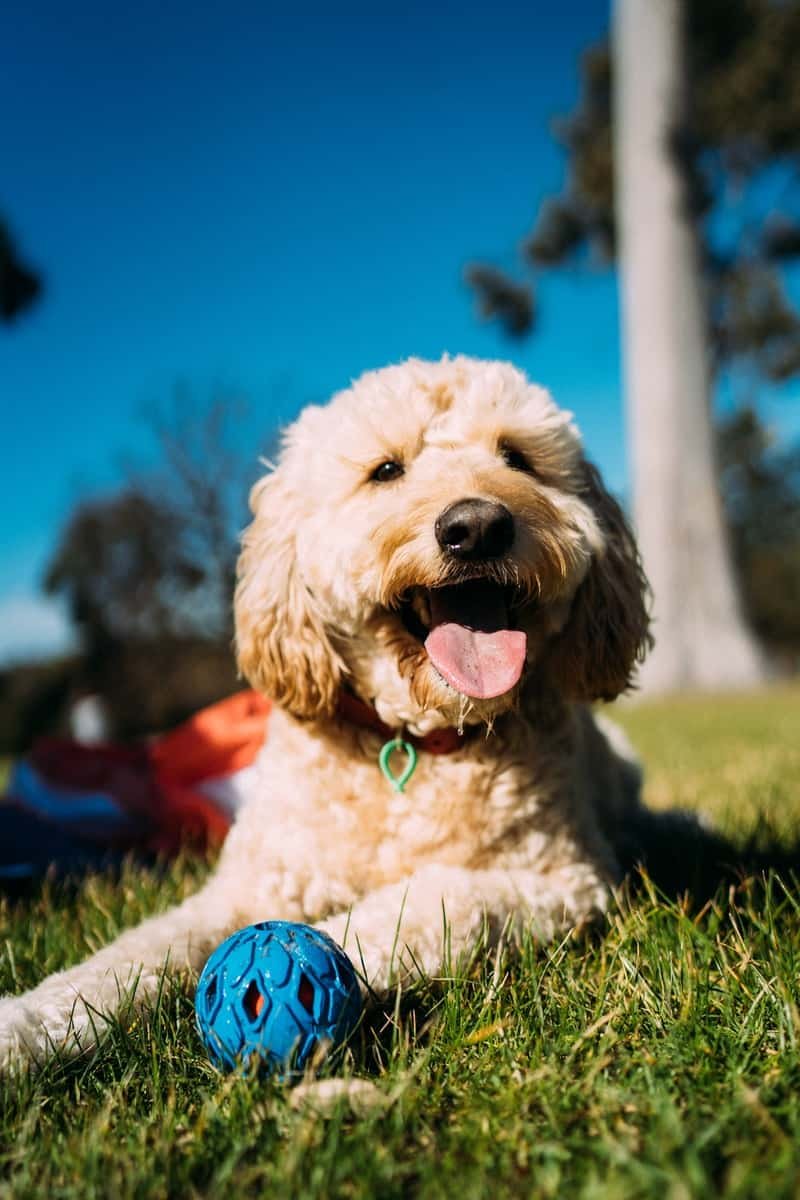Mini Goldendoodles are a popular breed of dog that have become increasingly popular in recent years. These adorable dogs are the result of breeding a Golden Retriever with a Miniature or Toy Poodle, resulting in a smaller version of the beloved Goldendoodle.
One of the most attractive features of the Mini Goldendoodle is their teddy bear-like appearance. They are small in stature but big on playfulness, making them an ideal family pet that gets along with kids and other pets. Additionally, their gentle, loving, smart, and eager-to-please temperament makes them a popular choice for therapy work.
Key Takeaways
- Mini Goldendoodles are a popular breed of dog that are smaller versions of the beloved Goldendoodle.
- They have a teddy bear-like appearance and are playful, making them an ideal family pet that gets along with kids and other pets.
- Their gentle, loving, smart, and eager-to-please temperament makes them a popular choice for therapy work.
Understanding Mini Goldendoodles
Mini Goldendoodles are a crossbreed between a Golden Retriever and a Miniature Poodle, bred for their hypoallergenic coat and friendly nature. They are a popular choice for families with children and those with allergies. In this section, we will explore the characteristics of Mini Goldendoodles, their origin, and what to expect when getting a Goldendoodle puppy.
Origin of Mini Goldendoodles
The Mini Goldendoodle is a relatively new breed, first appearing in the mid-1990s. The breed was designed to be a smaller version of the Goldendoodle, which is a crossbreed between a Golden Retriever and a Standard Poodle. The Mini Goldendoodle was created by breeding a Golden Retriever with a Miniature Poodle, resulting in a smaller, hypoallergenic dog that is perfect for families with children and those with allergies.
Characteristics of Mini Goldendoodles
Mini Goldendoodles are known for their friendly and affectionate nature. They are highly intelligent and easy to train, making them a great choice for first-time dog owners. They are also very active and require regular exercise to stay healthy and happy. Mini Goldendoodles have a hypoallergenic coat that sheds very little, which makes them a great choice for people with allergies.
Getting a Goldendoodle Puppy
When getting a Goldendoodle puppy, it is important to find a reputable breeder. Look for a breeder who is registered with a reputable organization, such as the American Kennel Club (AKC). A good breeder will provide you with information about the puppy’s parents and any health issues that may be present in the breed. They will also provide you with a health guarantee and make sure that the puppy has received all necessary vaccinations.
In conclusion, Mini Goldendoodles are a great choice for families with children and those with allergies. They are friendly, affectionate, and easy to train, making them a great choice for first-time dog owners. When getting a Goldendoodle puppy, it is important to find a reputable breeder and make sure that the puppy has received all necessary vaccinations.
Physical Characteristics
Mini Goldendoodles are a crossbreed between a Golden Retriever and a Miniature Poodle. They are a small to medium-sized dog and typically weigh between 25-35 pounds. They stand at a height of 14-17 inches. Mini Goldendoodles are smaller than their standard Goldendoodle counterparts, making them a great option for those who want a smaller dog.
Comparison with Standard Goldendoodles
Standard Goldendoodles are larger than Mini Goldendoodles and weigh between 50-90 pounds. They stand at a height of 20-24 inches. The coat of a standard Goldendoodle is usually wavy or curly and can come in a variety of colors, including cream, gold, red, and black. Mini Goldendoodles, on the other hand, have a coat that is usually curly and can come in a variety of colors, including cream, gold, red, black, and brown.
Variations in Coat Type
Mini Goldendoodles can have a variety of coat types, including wavy, curly, and straight. The coat can also be long or short, depending on the dog’s genetics. Some Mini Goldendoodles have a coat that is more like a Golden Retriever’s, while others have a coat that is more like a Poodle’s. They are also known for being hypoallergenic, making them a great option for those with allergies.
In terms of appearance, Mini Goldendoodles have floppy ears and a long, fluffy, or feathered tail. They have a friendly and intelligent temperament, making them great family pets. They are also highly trainable and have a moderate energy level, making them a good fit for both apartments and houses.
Overall, Mini Goldendoodles are a great option for those who want a small to medium-sized dog with a friendly and intelligent temperament. They come in a variety of coat types and colors, making them a great option for those who want a unique-looking dog.
Temperament and Behavior
Mini Goldendoodles are known for their friendly, social, and playful temperament. They are energetic dogs that love to play and spend time with their owners. Their loyalty and affectionate personality make them great family pets. They are also known for their intelligence and trainability, which makes them easy to train and teach new tricks.
One of the most notable traits of Mini Goldendoodles is their friendly and outgoing nature. They love to be around people and are known to be great with children. They are also social dogs that get along well with other pets, making them a great addition to any household.
Despite their energetic nature, Mini Goldendoodles are also known for their loyal and calm personalities. They are not typically aggressive and do not have strong guarding instincts. Instead, they are known for their affectionate and laid-back attitude.
When it comes to training, Mini Goldendoodles are highly intelligent and easy to train. They respond well to positive reinforcement and enjoy learning new things. They are also playful dogs that love to play fetch and other games, which makes training more enjoyable for both the dog and the owner.
Overall, if you are looking for a friendly, social, and playful dog that is easy to train and loyal to its owners, then a Mini Goldendoodle may be the perfect pet for you.
Health and Lifespan
Mini Goldendoodles are generally healthy dogs that can live up to 16 years old. The average lifespan of a Mini Goldendoodle is between 12 and 16 years, with some living up to 18 years. However, this lifespan can vary depending on various factors, such as breeding, nutrition, and exercise.
One of the most common health problems in Mini Goldendoodles is hip dysplasia. This condition occurs when the hip joint doesn’t develop properly, causing pain and discomfort. To prevent hip dysplasia, it’s important to purchase your puppy from a reputable breeder who performs health screenings on their breeding dogs.
Infections are also a concern for Mini Goldendoodles. This breed is prone to ear infections due to their floppy ears that can trap moisture and debris. Regular ear cleaning can help prevent infections. Additionally, Mini Goldendoodles are also susceptible to dental issues, such as periodontal disease. Regular dental care, including brushing their teeth and providing dental chews, can help prevent dental problems.
Heart disease is another common health problem in Mini Goldendoodles. This breed is prone to mitral valve disease, which is a condition that affects the heart’s ability to pump blood effectively. Regular check-ups with a veterinarian can help catch heart disease early and provide appropriate treatment.
Overall, while you can’t ensure your Mini Goldendoodle will be free of health problems, you can take steps to promote their health and wellbeing. Providing proper nutrition, exercise, and regular veterinary care can help your Mini Goldendoodle live a long and healthy life.
Exercise and Energy Levels
Mini Goldendoodles are a breed that require a moderate amount of exercise to maintain their physical and mental health. As per Dog Academy, they need around 60 minutes of exercise per day, but the actual amount may vary depending on their age, size, and individual energy level. A lack of exercise can lead to obesity, behavioral problems, and other health issues.
It is important to note that exercise needs may change as the Mini Goldendoodle grows from a puppy to an adult. According to Popular Doodle, adult Goldendoodles require between 30-120 minutes of exercise, 1-2 times per day. Standard Goldendoodles will need more physical activity than toy and mini Goldendoodles.
Mini Goldendoodles are an active breed that enjoys playing, running, and exploring. They are great companions for outdoor activities such as hiking, jogging, and swimming. However, they also enjoy indoor games such as fetch, hide-and-seek, and puzzle toys.
It is important to remember that Mini Goldendoodles are not high-energy dogs and need to have their exercise routine balanced with rest and relaxation. Over-exercising can lead to injuries and exhaustion. It is recommended to break up exercise sessions into shorter intervals throughout the day, rather than one long session.
In addition to regular exercise, Mini Goldendoodles also require mental stimulation to keep them engaged and happy. Mental stimulation can come from training, socialization, and interactive toys.
Overall, Mini Goldendoodles have a moderate energy level and require a balanced exercise routine to maintain their physical and mental health. They are an active breed that enjoys outdoor activities, but also need rest and mental stimulation to stay happy and healthy.
Grooming Needs
Mini Goldendoodles require regular grooming to keep their coat healthy and free of mats and tangles. They have a wavy, low-shedding coat that needs to be brushed at least once a week to prevent matting. A slicker brush or a comb can be used to remove any tangles and keep the coat shiny and healthy.
Bathing should be done as needed, which is typically once every 4-6 weeks. It is important to use a mild shampoo that is specifically formulated for dogs to avoid drying out their skin. After bathing, the coat should be thoroughly dried to prevent any skin irritation or infections.
Regular grooming also includes checking the ears, trimming the nails, and brushing the teeth. The ears should be checked and cleaned regularly to avoid any buildup of wax or debris that can lead to infections. Nails should be trimmed as needed to prevent them from getting too long and causing discomfort or pain. Brushing the teeth on a regular basis can help prevent dental issues and keep your Mini Goldendoodle’s breath fresh.
It is important to note that Mini Goldendoodles are not hypoallergenic, but they are considered low-shedding. This means that they do shed, but not as much as other breeds. Regular grooming can help minimize shedding and keep the coat healthy and shiny.
Overall, grooming is an important part of caring for your Mini Goldendoodle. Regular brushing, bathing, ear cleaning, nail trimming, and teeth brushing can help keep your dog healthy and happy.
Training Your Mini Goldendoodle
Training your mini Goldendoodle is an essential part of responsible dog ownership. Fortunately, mini Goldendoodles are generally easy to train and eager to please their owners. Here are some tips to help you train your mini Goldendoodle.
Start Early
Start training your mini Goldendoodle as early as possible. Puppies are like sponges, and they absorb information quickly. Begin with basic obedience training, such as teaching your dog to sit, stay, come, and walk on a leash. Consistency is key, so make sure to practice these commands every day.
Socialization
Socialization is crucial for mini Goldendoodles. Expose your dog to new people, places, and experiences from a young age. This will help your dog develop into a well-adjusted and confident adult. Make sure to introduce your dog to other dogs, children, and different environments.
Positive Reinforcement
Positive reinforcement is the most effective way to train your mini Goldendoodle. Reward your dog with treats, praise, and affection when they do something right. This will encourage your dog to repeat the behavior in the future. Avoid punishment or harsh training methods, as they can damage the relationship between you and your dog.
Separation Anxiety
Mini Goldendoodles are prone to separation anxiety, so it’s essential to train them to be comfortable when left alone. Start by leaving your dog alone for short periods and gradually increase the time. Provide your dog with plenty of toys and treats to keep them occupied while you’re away.
Training Challenges
While mini Goldendoodles are generally easy to train, they can have their challenges. Some dogs may be more stubborn than others, and some may have difficulty with certain commands. If you’re having trouble training your dog, consider enrolling them in a training class or working with a professional dog trainer.
Overall, with patience, consistency, and positive reinforcement, you can train your mini Goldendoodle to be a well-behaved and obedient companion.
Diet and Nutrition
Mini Goldendoodles require a well-balanced diet to maintain their health and energy levels. Their diet should include high-quality proteins, healthy fats, and carbohydrates. According to Dog Academy, the ideal food for Mini Goldendoodles should include two to three meat proteins, a decent fat profile, and a good balance of carbohydrates.
It is important to note that not all dogs have the same dietary needs, so it is essential to consult with a veterinarian before changing your Mini Goldendoodle’s diet. Some Mini Goldendoodles may have specific dietary restrictions or allergies that need to be taken into consideration.
When selecting dog food for your Mini Goldendoodle, it is recommended to choose a high-quality, grain-free brand. Grain-free dog food can help prevent allergies and digestive issues in your dog. Grain-free dog food is also beneficial for dogs with sensitive stomachs.
In addition to choosing the right dog food, it is important to monitor the amount of food your Mini Goldendoodle is consuming. Overfeeding can lead to obesity and other health issues. According to Bubbly Pet, a good rule of thumb is to feed your Mini Goldendoodle one cup of food per 15 pounds of body weight per day. However, the exact amount of food your Mini Goldendoodle needs may vary depending on their age, size, and activity level.
In summary, Mini Goldendoodles require a well-balanced diet that includes high-quality proteins, healthy fats, and carbohydrates. It is recommended to choose a high-quality, grain-free brand of dog food and monitor the amount of food your Mini Goldendoodle is consuming to prevent overfeeding. As always, consult with a veterinarian before making any changes to your Mini Goldendoodle’s diet.
Choosing a Breeder
Choosing the right breeder is crucial when it comes to getting a healthy and happy Mini Goldendoodle adult. Here are some tips to help you find a reputable breeder:
Research
Do your research and make sure the breeder you choose has a good reputation. Look for reviews and testimonials from previous customers. You can also ask for recommendations from friends or family members who have purchased from a breeder before.
Parent Dogs
It’s important to ask the breeder about the parent dogs. A reputable breeder will be able to provide you with information about the health and temperament of both the mother and father. They should also be able to show you health clearances for both dogs.
Health Guarantee
A good breeder will offer a health guarantee for their puppies. This means that if your Mini Goldendoodle adult develops a genetic health problem, the breeder will take responsibility and provide you with a replacement puppy or a refund.
Top Quality
Look for a breeder who focuses on producing top-quality Mini Goldendoodles. This means they prioritize the health and well-being of their dogs over profit. They should also be able to show you proof of their dogs’ pedigree and registration.
Visit the Breeder
If possible, visit the breeder in person to see the conditions their dogs are living in. A reputable breeder will be happy to show you around and answer any questions you may have.
By following these tips, you can find a reputable breeder who will provide you with a healthy and happy Mini Goldendoodle adult.
Role as Family and Therapy Dogs
Mini Goldendoodles are known to be excellent family pets and therapy dogs due to their friendly and affectionate nature. They make great companions for people of all ages, including children and the elderly.
As family pets, Mini Goldendoodles are good with kids and other household pets. They are intelligent and easy to train, which makes them a great addition to any household. They require a moderate amount of exercise and mental stimulation, which can be easily achieved through daily walks and playtime.
In addition to being great family pets, Mini Goldendoodles also make excellent therapy dogs. They are known for their calm and gentle demeanor, which can be comforting to people undergoing long hours of therapy treatment or those in assisted living homes. Mini Goldendoodles have been known to provide emotional support to kids who need companionship, as well.
To become a certified therapy dog, Mini Goldendoodles must undergo specialized training to learn how to provide comfort and support to those in need. This training includes learning how to follow basic commands, such as sit, stay, and come, as well as learning how to interact with people in a calm and gentle manner.
Overall, Mini Goldendoodles are versatile dogs that can serve as both family pets and therapy dogs. They are loyal, loving, and intelligent, which makes them an excellent choice for anyone looking for a companion that can provide both emotional and physical support.
Special Considerations for Mini Goldendoodles
Mini Goldendoodles are a hybrid breed that is a mix of Golden Retrievers and Poodles. They are a smaller version of the standard Goldendoodle and are often called “Miniature Goldendoodles.” Here are some special considerations to keep in mind when caring for a Mini Goldendoodle.
Size and Exercise
Mini Goldendoodles are smaller than their standard counterparts and are often considered a “medium-sized” dog. They can weigh between 20-40 pounds and stand about 16-20 inches tall at the shoulder. Despite their smaller size, they still require regular exercise to maintain their health and happiness. A daily walk or game of fetch can help keep your Mini Goldendoodle active and engaged.
Intelligence and Training
Mini Goldendoodles are known for their intelligence and trainability. They have genes from both the Golden Retriever and Poodle, which makes them quick learners. They respond well to positive reinforcement training methods and enjoy learning new tricks and commands. Early socialization and training are important for Mini Goldendoodles to develop into well-behaved and confident adults.
Coat Care
Mini Goldendoodles can have a variety of coat types, including curly, wavy, and straight. They are often considered hypoallergenic because they have a low-shedding coat. However, their coat still requires regular grooming to prevent matting and tangling. Brushing your Mini Goldendoodle’s coat a few times a week and regular visits to a professional groomer can help keep their coat healthy and shiny.
Health Concerns
Like all dogs, Mini Goldendoodles can be prone to certain health issues. Some potential health concerns to be aware of include hip dysplasia, ear infections, and allergies. Regular visits to the vet and a healthy diet can help prevent or manage these health issues.
Contact with Other Dogs
Mini Goldendoodles are friendly and social dogs that enjoy the company of other dogs. However, it’s important to monitor their interactions with other dogs, especially if they are still in their adolescent stage. Some Mini Goldendoodles can be overly enthusiastic and may need to learn appropriate play behavior.
Teacup and Toy Goldendoodles
Teacup and toy Goldendoodles are smaller versions of the Mini Goldendoodle. However, it’s important to note that these smaller sizes can come with additional health concerns. Teacup and toy Goldendoodles can be more fragile and may require extra care and attention. It’s important to do your research and work with a reputable breeder if you are considering a teacup or toy Goldendoodle.
Groodles and Standard Poodles
Groodles and standard Poodles are other hybrid breeds that are similar to Mini Goldendoodles. Groodles are a mix of Golden Retrievers and Poodles, while standard Poodles are a purebred breed. If you are considering a Mini Goldendoodle, it’s important to research these other breeds as well to find the best fit for your lifestyle and preferences.
Frequently Asked Questions
What is the typical size of a mature mini Goldendoodle?
When breeders advertise Mini Goldendoodles, they generally mean dogs that, at their mature size, sit somewhere between 26 to 35 pounds and 14 to 17 inches to the shoulder. Mini Gs fall within the small-to-medium-size canine category.
Where can I find a reputable breeder for F1 mini Goldendoodles?
Finding a reputable breeder is essential when looking for a Mini Goldendoodle. To ensure you are getting a healthy and well-bred dog, it’s essential to do your research and find a reputable breeder. You can start by checking with the American Kennel Club (AKC) for breeders in your area. Additionally, you can search online for breeders who specialize in Mini Goldendoodles.
What is the difference between an F1 and F1B mini Goldendoodle?
An F1 Mini Goldendoodle is a first-generation cross between a purebred Golden Retriever and a purebred Miniature Poodle. On the other hand, an F1B Mini Goldendoodle is a cross between an F1 Mini Goldendoodle and a purebred Poodle. The F1B Mini Goldendoodle is generally more hypoallergenic and has curlier hair than the F1 Mini Goldendoodle.
What are the common personality traits of a mini Goldendoodle?
Mini Goldendoodles are known for their easy-going, fun-loving temperaments, and gentle natures. Their goofy personalities make them a blast to play with, but their Poodle intelligence makes them easy to train. They are also known for being loyal and affectionate companions.
Is a mini Goldendoodle a good fit for apartment living?
Mini Goldendoodles can be a good fit for apartment living, as they are small-to-medium-sized dogs and do not require a lot of space. However, it’s important to note that they are active dogs and require daily exercise and mental stimulation. If you live in an apartment, you will need to make sure your Mini Goldendoodle gets enough exercise and playtime.
At what age is a mini Goldendoodle considered an adult?
A Mini Goldendoodle is typically considered an adult at around 12 months of age. However, this can vary depending on the individual dog’s size and development. It’s important to consult with your veterinarian to determine when your Mini Goldendoodle has reached adulthood.

